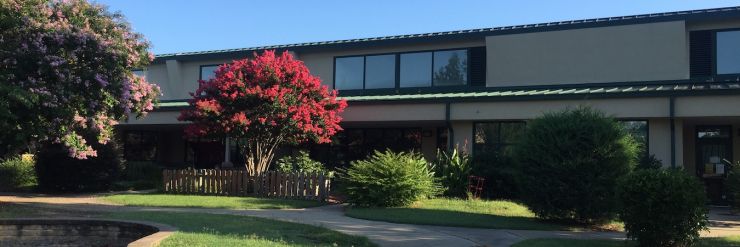
In a Montessori Elementary classroom, the teacher’s central role is to connect students with lessons and materials so that they can pursue their own learning. Teachers prepare the classroom to provide structure for students and protect their freedom. Teachers guide and inspire learning. While aware of all the students, they move around the class, giving lessons to individuals or small groups. They also allow students time to repeat and practice work. Time and attention are focused on providing developmentally appropriate learning opportunities for individuals and small groups of students.
The ultimate goal is to inspire students’ interest and provide appropriate opportunities for on-going progress and mastery. In many schools, the term “guide” is used instead of “teacher” to highlight students’ role in their learning. Teachers don’t give many lectures to the whole class. Nor do they tell students what to do, or what to learn. Students are provided with materials which facilitate their independence and ability to be self-directed in the classroom.The structure and materials encourage independence, interdependence, and executive functioning skills. Students are encouraged to collaborate and seek help from each other which builds confidence, spark insights, and lead to excitement. Teachers provide opportunities for students to work through challenges which provide opportunities for meaningful learning and build independence.

The Montessori Elementary classroom is designed to integrate the needs and the characteristics of children in the second plane of development.
- Group Instinct
- Separation from the Family
- Physical Stamina
- Moral Development
- Hero Worship
- Powers of Imagination
- Development of the Intellect
- Powers of Abstraction
- Great Work
- Sense of Responsibility
 Maria Montessori developed the theory of Cosmic Education: that everything in our universe is interdependent and the past, present, and future of our history is interconnected. All bodies of study branch out from this cosmic education plan: life science, earth science, physical science, geography, history, math and the arts. Children at this age have a curiosity regarding the world around them and a deep desire to attain knowledge. Children by nature integrate their learning rather than compartmentalizing into individual subject areas. Montessori is a unique individualized educational approach that nurtures a child's intrinsic desire to learn and focuses on the whole child—their cognitive, social, emotional, and physical development. Our hope and expectation is for the students leaving our program to go forth as passionate learners, problem solvers, and stewards of peace.
Maria Montessori developed the theory of Cosmic Education: that everything in our universe is interdependent and the past, present, and future of our history is interconnected. All bodies of study branch out from this cosmic education plan: life science, earth science, physical science, geography, history, math and the arts. Children at this age have a curiosity regarding the world around them and a deep desire to attain knowledge. Children by nature integrate their learning rather than compartmentalizing into individual subject areas. Montessori is a unique individualized educational approach that nurtures a child's intrinsic desire to learn and focuses on the whole child—their cognitive, social, emotional, and physical development. Our hope and expectation is for the students leaving our program to go forth as passionate learners, problem solvers, and stewards of peace.
- Mixed Grades in the same classroom
- Lower Elementary: Grades 1-3
- Upper Elementary: Grades 4 - 6
- Classroom Size: 28 -30 students
- 2 Teachers in every class: 1 MACTE accredited Lead and 1 Assistant
- 2-3 hour uninterrupted morning work cycles
- Learning follows a developmental path.
- Teachers conference with students on a regular basis to set goals and discuss progress.
- Montessori curriculum is introduced over 3 years. It aligns with and meets NC standards.
- All core subjects are integrated into classroom learning.
- Specials Opportunities: two physical education classes, an art class, and a music class each week,
- Spanish Language instruction for 3rd - 6th grade
- Small group lessons using hands-on materials
- State EOG/ BOG Test Practice integrated into practical life
- Practical life opportunities integrated into the classroom
- Peace curriculum which integrates the following:
- Positive Discipline and Restorative justice approach to discipline and conflict resolution
- Social Emotional Learning
- Anti-bias and Anti-Racist approaches
- Grace and courtesy lessons
- Community Service Opportunities
- 8:45am - 11:30am Morning work cycle
- 11:30am - 12:30pm Lunch/Recess
- 12:30pm - 3:45pm Specials/ Work Cycle

